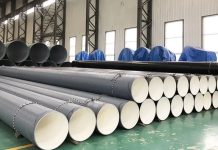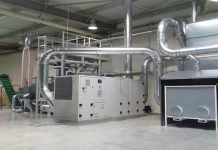Forging is a manufacturing method that involves applying localized compressive stresses to metal to shape it. This process requires deforming metal workpieces, usually at elevated temperatures, to create desired shapes and qualities. There are several forging techniques, such as seamless ring rolling, impression-die forging, closed-die forging, and open-die forging, each with unique benefits for specific uses. The procedure improves the metal’s mechanical qualities, producing parts renowned for their sturdiness, strength, and dependability.
It is an essential and fundamental method because forging may be used on various materials, such as titanium, steel, aluminum, and brass. To get effective forged materials, click on the link: https://www.cxinforging.com/custom-mold/. Forging improves performance in vital industries, including aerospace, automotive, and oil and gas, by refining grain sizes, aligning fibers, and removing imperfections by modifying the crystalline structure of metals.
Materials That Forged Most Frequently
The finished products’ performance, appropriateness, and strength are greatly influenced by the materials used in the forging process. Here, we examine the frequently forged materials, emphasizing their characteristics, uses, and importance in the forging sector.
Steel Is the Base Material for Forging
One of the most widely used forging materials is steel, prized for its remarkable strength, resilience, and adaptability. Steel’s crystalline structure is altered during forging, improving the material’s mechanical qualities. Components for the automotive, aerospace, construction, and oil and gas industries are made by forging several steel grades, such as carbon steel, alloy steel, and stainless steel.
Aluminum Sturdy and Lightweight
Applications requiring components that are both durable and lightweight frequently use aluminum forging. The aircraft and aerospace sectors prefer aluminum forgings because of their superior strength-to-weight ratio. Aluminum’s natural qualities are enhanced throughout the forging process, resulting in better mechanical and structural-quality products.
Brass Corrosion-resistant and Malleable
Brass is an alloy of copper and zinc preferred for these qualities. Applications for forged brass components include decorative objects, plumbing, and electrical fixtures. Brass’s microstructure is improved during the forging process, which results in improved mechanical qualities.
Titanium a Lightweight, High-Strength Alloy
Applications for titanium forgings include high-performance engineering, aerospace, and medical implants. Titanium, well-known for having a high strength-to-weight ratio and being corrosion-resistant, is carefully forged to create intricate shapes while maintaining its natural qualities.
Copper Electrical and Magnetic
Forgings made of copper are prized for their ductility, resistance to corrosion, and electrical conductivity. Forged copper components are essential to the electronics and electrical industries because of their dependability. Grain structure is improved throughout the forging process, which results in better mechanical qualities.
High-Temperature Uses for Nickel Alloys
In industries with high temperatures, such as chemical processing and aerospace, nickel alloys are frequently used for forging. Materials based on nickel are guaranteed to maintain their strength and ability to withstand corrosion at high temperatures through forging.
Tool Steels Accurate Functioning
Tool steels are commonly forged to create dies and other tools because of their remarkable hardness and wear resistance. Tool steels are given exceptional strength and toughness through the forging process, guaranteeing durability and accuracy in machining and forming applications.
Superalloy’s Superior Resistance to High Temperatures
Because of their exceptional resilience to high temperatures, superalloys made of elements like nickel, cobalt, and chromium are useful for industrial and aerospace gas turbine applications. Superalloys’ creep resistance and strength at high temperatures are preserved during forging.
Duplex Stainless Steels Durability and Resistance to Corrosion
Due to its exceptional strength and resistance to corrosion, duplex stainless steels are used in the forging of components used in chemical processing, the oil and gas industry, and maritime applications. The forging process improves the structural integrity and corrosion resistance of the material.
Iron Work Historical Importance
Forging has historically used wrought iron despite its rarity in modern uses. Because of its fibrous structure, which results from forging, it has toughness and ductility, making it appropriate for conventional blacksmithing.
Conclusion
Various metals and alloys are frequently used in forging, with each type being selected based on its benefits and uses. By improving the microstructure and transferring superior mechanical properties, the forging process improves these materials. Forging remains an essential industrial process for materials ranging from superalloys’ resistance to high temperatures to steel’s fundamental strength.









